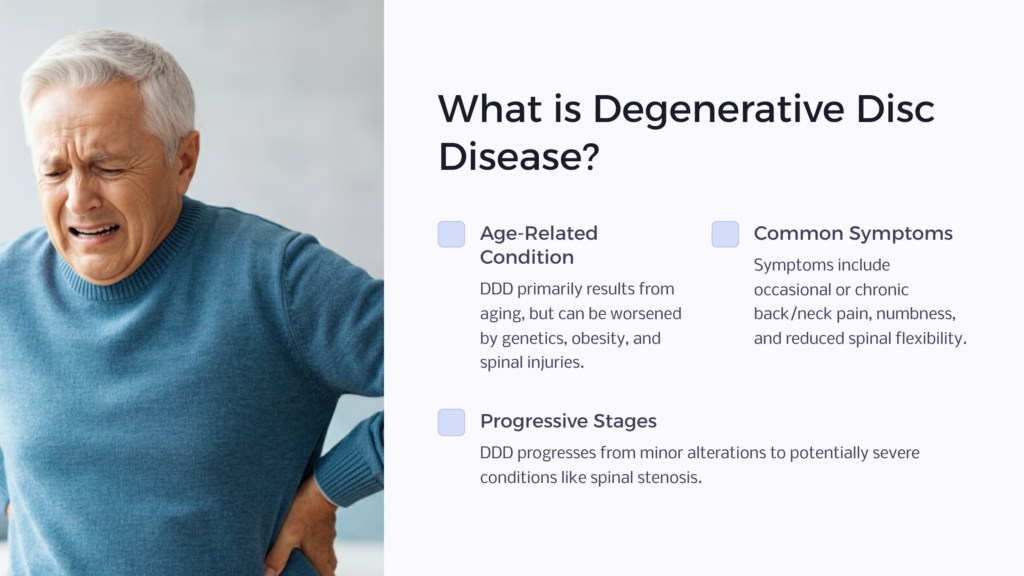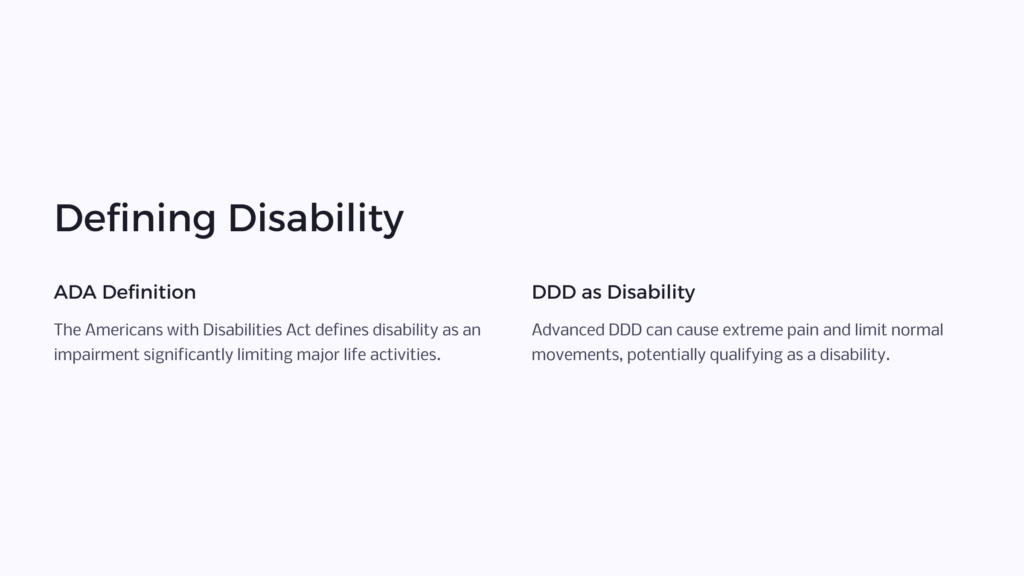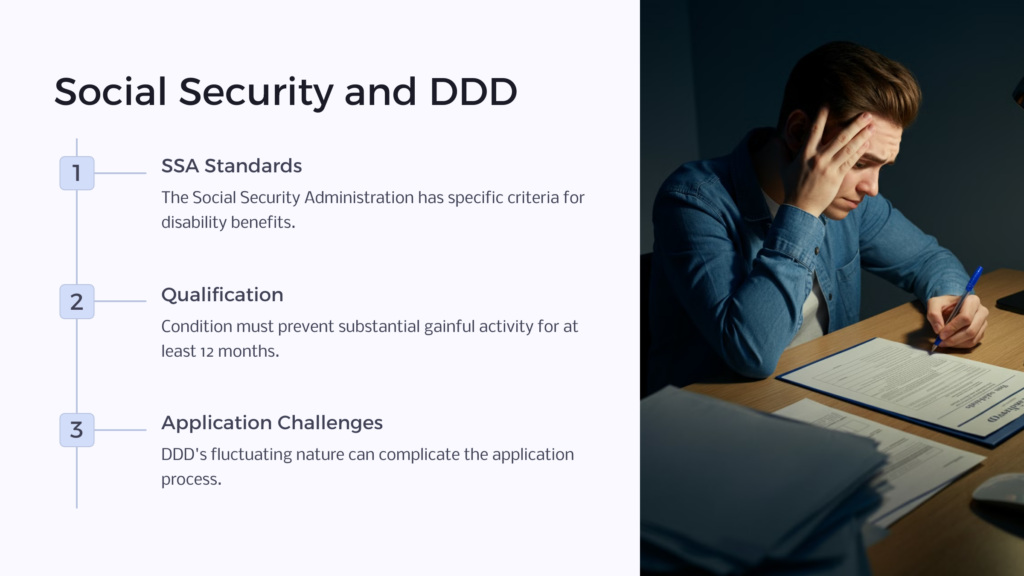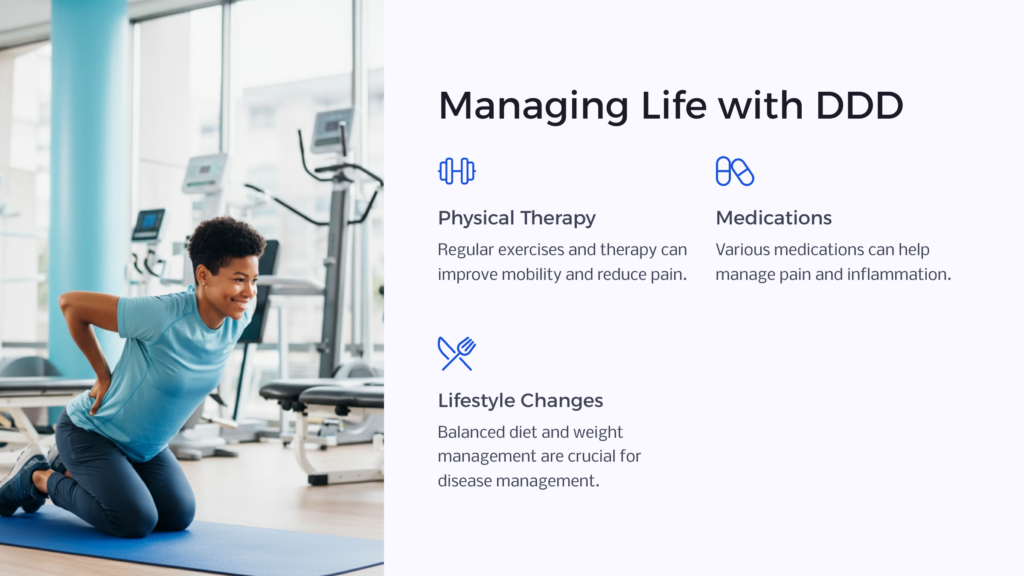Degenerative Disc Disease (DDD) is a widespread medical condition primarily affecting individuals’ spinal cord with progressing age. It’s a disease where the intervertebral discs, cushions separating the bones in the spine, naturally degrade and potentially lead to painful symptoms. When social security disability benefits start looking like a potential option, you may find yourself having to ask the question: is degenerative disc disease a disability?
Understanding Degenerative Disc Disease

To understand the concept of DDD as a disability, one ought to comprehend the nature of the disease. DDD is primarily a result of aging, but it could be compounded by factors like genetic predisposition, obesity, and a history of spinal injuries. Its most common symptoms are occasional or chronic back or neck pain, numbness, and tingling in the limbs, and reduced flexibility in the spine.
DDD progresses in stages, varying in severity levels. The initial stage sees minute alterations in the spine, but the individual experiences negligible pain. As the disease progresses, disc degeneration can lead to conditions like spinal stenosis and herniated disks, severely impacting individuals’ movement and quality of life.
Degenerative Disc Disease as a Disability

In determining whether DDD can be considered as a disability, it’s crucial to clarify what categorizes a disability. According to the Americans with Disabilities Act (ADA), a person with a disability has a physical or mental impairment that significantly limits one or more major life activities.
In relation to DDD, considerable impairment arises when the disease progresses to advanced stages. Disc collapse could pinch the nerves in the spinal column, causing extreme pain and limiting normal movements. In some cases, DDD may prevent individuals from performing basic tasks like sitting, walking, or lifting objects, thereby impacting their ability to work.
Case studies further cement DDD as a disability. In one study, a 45-year-old construction worker had been suffering from severe DDD, causing him chronic back pain and affecting his job performance. The individual’s condition had progressed to such an extent that it became impossible for him to carry out his regular duties. Thus, the person was classified as disabled due to his inability to work.
The Social Security Administration (SSA) and Degenerative Disc Disease

However, being labeled as ‘disabled’ in everyday language does not necessarily qualify one for Social Security disability benefits. The Social Security Administration (SSA) employs its own standards in assessing long term disability. Under SSA’s specifications, the individual’s condition must be considered severe enough to prevent them from performing substantial gainful activity for at least 12 months. Only then would they qualify for Social Security Disability Insurance.
Applying for SSDI benefits with DDD can be complicated. The shifting nature of the disease, coupled with fluctuating pain levels, pose a challenge in establishing the condition’s severity. However, individuals with substantial medical evidence with medical records depicting severe prognosis may have a good chance of seeing their social security disability claim approved.
Managing Life with Degenerative Disc Disease

Coming to grips with a DDD diagnosis can be daunting. Still, numerous treatments, therapies, and lifestyle modifications can significantly improve quality of life. Physical therapy, medications, regular exercises, and in severe cases, surgery, can provide relief for severe pain. A balanced diet and healthy weight management are also crucial factors in disease management.
The impact of DDD stretches beyond physical health. Mundane activities like sitting or bending and work life can be drastically affected. In addition, the chronic pain and physical limitations might strain personal relationships. Coping with such a diagnosis involves accepting the condition, handling work adaptations, and cognitive behavioral therapy.
Keep In Mind
A common misconception often encountered is that a diagnosis for this medical condition immediately qualifies individuals for social security benefits. It’s essential to understand that while DDD can ultimately lead to disability, it all depends on disease severity, the level of impairment, and the result given by the SSA’s disability determination services.
Conclusion
Degenerative Disc Disease can significantly impact individuals, placing limitations on daily activities and work life. Therefore, in several cases, it can thus be considered a disability. However, it’s imperative to remember that the journey from DDD diagnosis to a disability claim is complex and needs significant medical documentation.
It is vital for individuals to seek professional advice to navigate these complexities if they are considering applying for disability benefits due to DDD.
Call to Action
If you or your loved ones are grappling with DDD, consult a physician to assess the severity of the condition. If your daily life activities and earning capabilities are drastically hindered, you might want to seek legal advice to determine if you qualify under the SSA’s disability criteria. Acceptance and awareness are the first steps towards coping with Degenerative Disc Disease successfully.
Check us out at Benefits.com and take our quiz so we can get started helping you on your path to receiving benefits.
 Benefits.com Advisors
Benefits.com Advisors
With expertise spanning local, state, and federal benefit programs, our team is dedicated to guiding individuals towards the perfect program tailored to their unique circumstances.
Rise to the top with Peak Benefits!
Join our Peak Benefits Newsletter for the latest news, resources, and offers on all things government benefits.




















